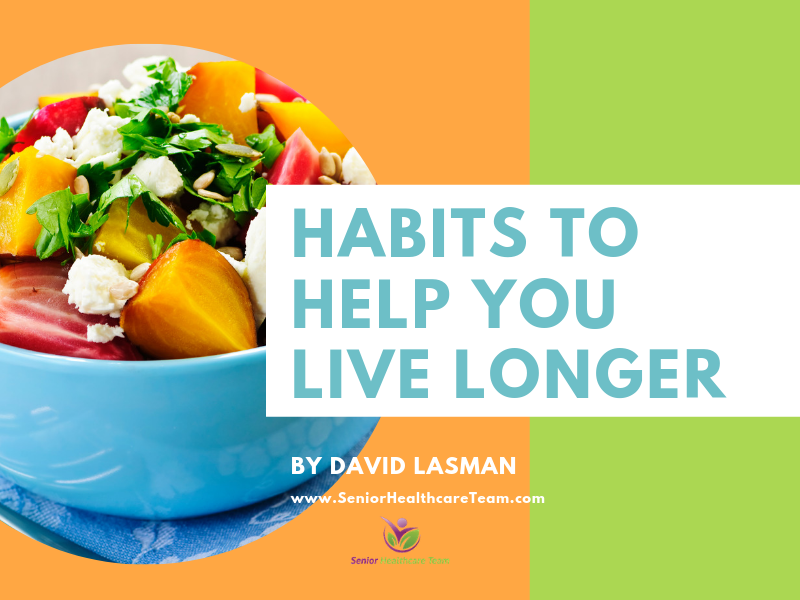There are a number of things you can resolve to do in order to “slow down” your biological clock and live longer, whether you’re in your 20s or 30s, all the way to your 60s, 70s, and beyond. In fact, research has shown it’s never too late to start healthy habits.
But what about the things you might stop doing in the name of your longevity?
Stop Eating Mainly Processed Foods
One of the major dietary changes that have taken place in many countries over the last 30 years has been a shift to consuming more processed foods. Along with processing comes an increase in added sodium, more saturated fat, more sugar, and less fiber. The result? More cardiovascular disease, hypertension, cancer, and diabetes.
For example, the National Institutes of Health (NIH) recommends consuming no more than 2,300 mg (less than 2.4g) of sodium each day—less for many seniors and other people with certain health conditions, like high blood pressure. Still, in a survey of more than 7,000 Americans, the Centers for Disease Control (CDC) found people consume an average of 3,300 mg of sodium per day. Most of the salt comes from restaurant and convenience foods, like baked goods, cured meats, and soup.
Do your body a favor, and try to eat “clean” more often, including foods high in fiber (which are linked to greater longevity) and other ingredients you purchase and prepare yourself. If you’re short on time (and who isn’t?), cook ahead in big batches, or splurge on ready-made salads and other fresh or frozen vegetables while watching the sodium and sugar contents on the label.
Stop Smoking
If you’re a smoker, you know how hard quitting can be, but here’s some inspiration: The NIH says tobacco use remains the most preventable cause of death. Some estimates suggest smoking can rob you of a decade of life.
Whether you quit cold-turkey or phase out your habit, your body is surprisingly forgiving; blood pressure and circulation improve soon after quitting, and your risk of getting cancer decreases every year thereafter. Keep in mind that your family members will also benefit from your staying tobacco-free because they’ll no longer be exposed to dangerous second-hand smoke. You’ll look younger, too.
Stop Sitting Still
If you don’t feel you have time to exercise, consider this: You may not need to hit the global minimum recommendations of 30 minutes a day, five or more times per week, to extend your life. A study published in 2011 in The Lancet, examining the activity habits of more than 416,000 men and women in Taiwan, found that getting just 15 minutes of moderate-intensity exercise each day helped subjects live three extra years. The longevity boost went up to four years of longer life for people achieving the threshold of 30 minutes a day. The results held true even for those with health problems like cardiovascular disease—and for overweight people who didn’t lose any pounds through their activity.
Brisk walking was one of the “moderate intensity” exercises cited in the Taiwanese research. You might have to make a conscious effort to work it into your daily routine, but 15 minutes of activity for an extra three years of life sounds like a longevity bargain.
Stop Holding a Grudge
Habits to Help You Live Longer
Anger can be a tough emotion to release, especially if you feel justified in your outrage. Maybe the best question to ask yourself is this—is it worth the cortisol? Levels of this stress hormone go up when you’re stressed or angry, with negative effects on your heart, metabolism, and immune system. High cortisol has been associated with greater mortality in a number of studies.
Stop Keeping to Yourself
Staying social can be a good longevity booster, mostly by helping you manage stress and by strengthening your immune system. Good relationships keep you strong, while bad relationships can leave you in a negative frame of mind, and put you at risk of depression and even heart attacks.
Staying connected can be a tough one if you are feeling down, have lost someone close to you, or live far away from extended family and friends. There are ways to re-engage and meet new people even if you are in a new city, including volunteering and reaching out to others with similar interests through networks like business groups and book clubs.
By David Lasman – “Ask Medicare Dave” | President – Senior Healthcare Team
wwww.SeniorHealthcareTeam.com | 866-333-7340
Selecting the right healthcare plan through Medicare can be overwhelming and downright stressful. Senior Healthcare Team is a nationwide resource that provides guidance and support about Medicare to seniors at no cost to them and helps them to choose the most suitable insurance plan tailored to their specific needs and budget. Our goal is to educate and empower our clients to make the best decisions regarding their healthcare and clear up the confusion of Medicare. At Senior Healthcare Team, we aren’t partial to any one insurance company. Our loyalty is to our clients and our mission is to provide them with the best healthcare options at the very lowest cost.

